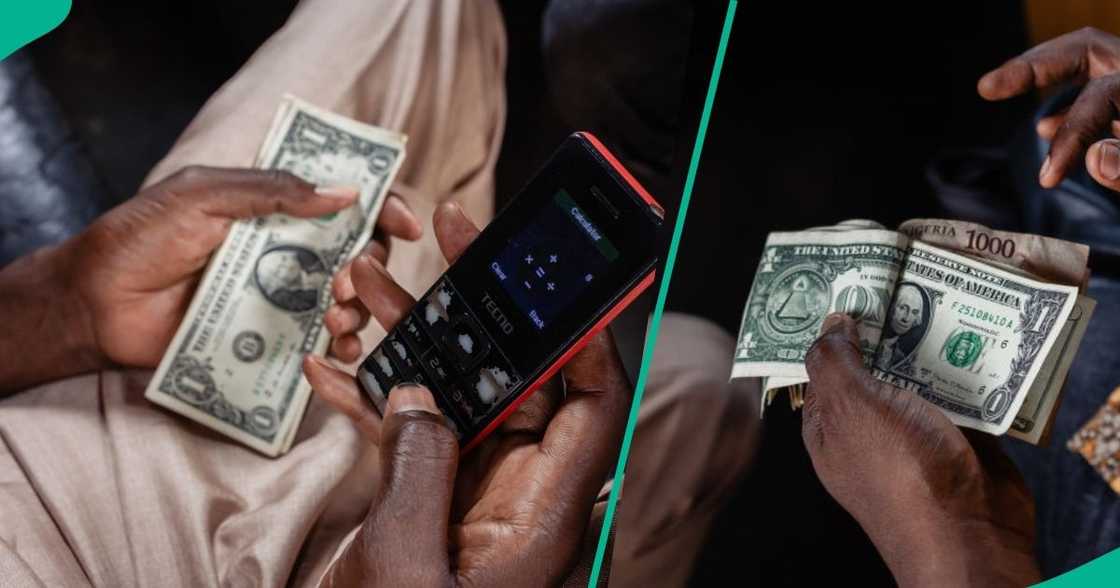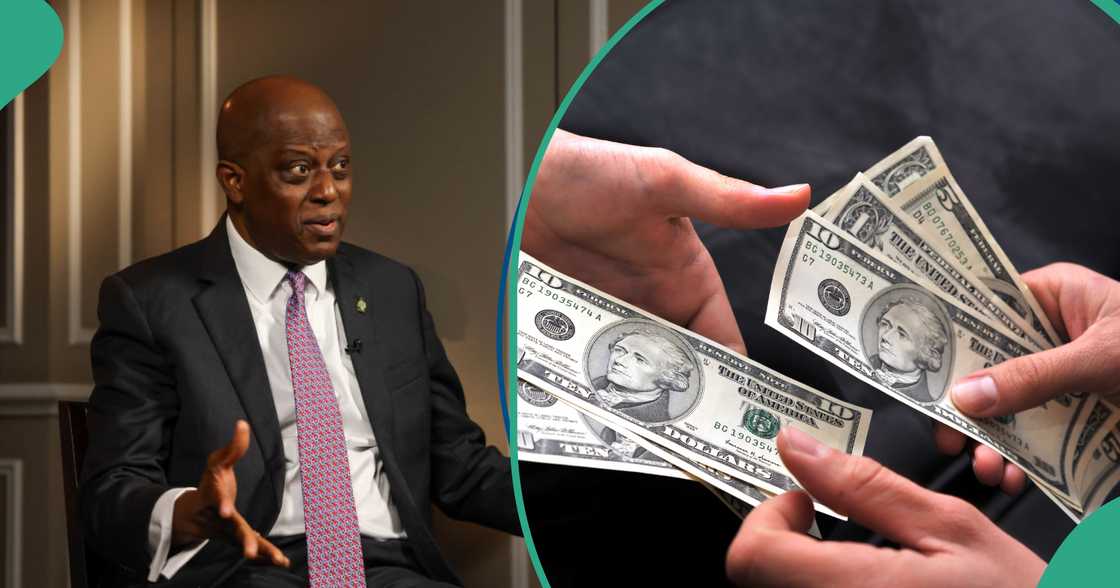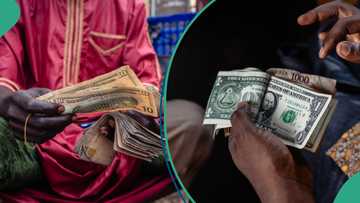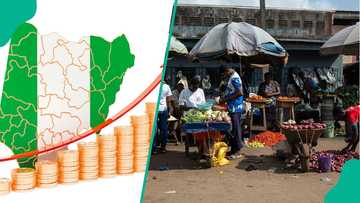Naira loses N14.29 against US dollar as trading week ends on a low
- The naira has weakened in both official and parallel markets due to sustained FX demand
- The fall comes despite rising inflows and stronger external reserves, which is now at 7-year high
- United Capital reporting the strongest FX inflows in months and improved investor confidence
Legit.ng journalist Dave Ibemere has over a decade of business journalism experience with in-depth knowledge of the Nigerian economy, stocks, and general market trends.
The value of the naira has dropped once again against the US dollar in the unofficial foreign exchange markets.
There were also changes in the exchange rates for the British pound and the euro as market pressures persisted, despite strong foreign exchange inflows.

Source: Getty Images
New exchange rate
Data from the Central Bank of Nigeria revealed that in the official Nigerian foreign exchange market naira closed at N1,456.72/$1 on Friday, November 21.
The latest rate is a N4.59 or 0.32% compared to N1,452.13/$1 in the previous session.
Also, the local currency also depreciated against the British pound, losing N5.29 to trade at N1,905.98/£1, and fell against the euro by N3.54, settling at N1,678.29/€1.
Other currency exchange rates
The CBN also provided updated rates for other major currencies:
- CFA : N2.55
- Yuan/Renminbi : N204.87
- Danish Krona : N224.69
- Euro : N1,678.29
- Japanese Yen : N9.29
- Saudi Riyal : N388.41
- South African Rand : N83.99
- Special Drawing Rights : N1,972.41
- Swiss Franc : N1,805.11
- Pounds Sterling : N1,905.98
Naira to dollar at black market
Similarly, the Nigerian currency, the naira, has depreciated against the United States dollar and other foreign currencies.
Legit.ng spoke to several Bureau de Change (BDC) operators, who confirmed that the naira has dropped in value, with buying and selling rates showing slight increases in retail transactions.
Abudullahi, a BDC trader, told Legit.ng:
"The dollar buying rate is now N1,460, while the selling rate is N1,465. The euro sells at N1,655 and is bought at N1,665. The British pound sterling sells between N1,885 and N1,920."

Source: Getty Images
External reserves and FX inflows
Nigeria’s external reserves rose by $650 million week-on-week to $44.18 billion as of November 20, 2025, up from $43.53 billion on November 13.
A report by United Capital Plc noted that reserves have strengthened over recent months, providing over eight months of import cover and supporting market confidence.
United Capital also highlighted that October saw the highest FX inflows since May, reflecting strong investor appetite for Nigeria’s economy.
Data from FMDQ showed total FX inflows surged 91% month-on-month to $6.1 billion in October, reinforcing confidence in Nigeria’s external buffers and indicating growing interest from foreign investors.
Analysts say that while the naira faces moderate downward pressure, strong external reserves and robust FX inflows continue to support the currency, helping to stabilise market confidence.
Top bank predicts new naira to dollar exchange rate in 2026
Earlier, Legit.ng reported that the naira has been projected to weaken between N1,650 and N1,700 in mid-2026, due to expected pressure driven by lower crude oil prices and new monetary easing cycle.
This is the view of David Cowan, Citibank African economist in a note to clients on Wednesday, September 24, 2025.
In the note, he stated that Nigeria will begin a new monetary easing cycle next year.
Source: Legit.ng




